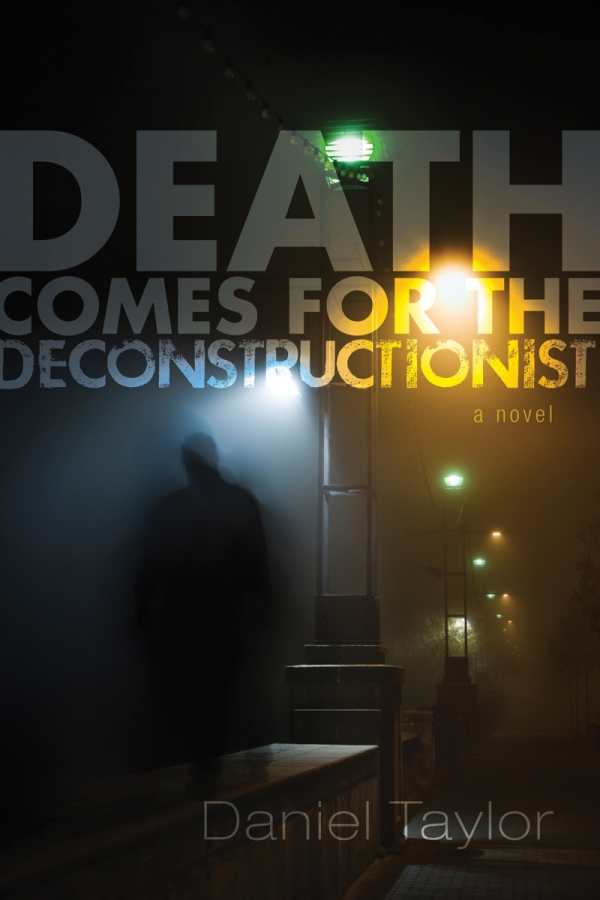
Death Comes for the Deconstructionist
Weighty subjects and introspection never bog down Taylor’s quirky characters as they rush toward a surprising finish.
Death Comes for the Deconstructionist, by Daniel Taylor, is a slim, funny, thoughtful novel about mental illness, academia, self-knowledge, and philosophy, with a murder mystery thrown in.
Jon Mote, a failed husband and failed graduate student, lives with his sister on a houseboat in St. Paul, Minnesota. When the widow of a murdered professor calls, asking him to look into the death of his former dissertation director, Mote is reluctant—his usual part-time research work involves, for example, the history of popcorn or insurance rates—but he needs the money. Alongside his incessantly sunny but unwell sister, Judy, Mote will have to revisit his own past, as well as that of the highly accomplished Doctor Pratt, who turns out to have a surprising number of enemies. The voices in Mote’s head grow more insistent as the case stresses his fragile grip on reality. Despite her own handicaps, Judy may have to hold things together.
Mote’s first-person voice is intimate, confiding, and confessional; he doesn’t merely narrate but speaks directly to his reader. Judy’s mental differences are only slowly and intuitively revealed, and Mote’s own faculties are gradually called into question but never resolved, since he tells his own tale. This method of character development is effective and entertainingly unsettling. As Mote interviews suspects, his inner thoughts play along with the spoken dialogue, providing a double account.
Set against the halls of academia, this offbeat mystery offers copious literary references, laden with inside jokes for the well-read. Mote explores philosophies not just of literature but of life, asking questions about the value of the academy and the nature of truth. The mechanics of Taylor’s writing are smooth enough as to be invisible, so the story is immersive, and the increasingly threatening world of Mote’s mind is easy to get lost in. Death Comes for the Deconstructionist, with its wry criticism of the academic subculture, will please fans of literary fiction and cerebral mysteries.
Reviewed by
Julia Jenkins
Disclosure: This article is not an endorsement, but a review. The publisher of this book provided free copies of the book to have their book reviewed by a professional reviewer. No fee was paid by the publisher for this review. Foreword Reviews only recommends books that we love. Foreword Magazine, Inc. is disclosing this in accordance with the Federal Trade Commission’s 16 CFR, Part 255.
